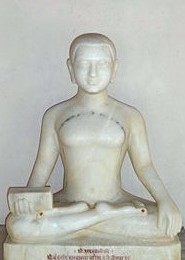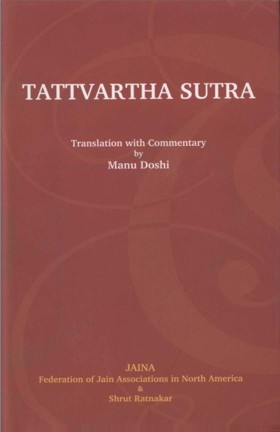09.09 Kshutpipāsāsheetoshnadanshmashaknāgnyār-atistridiaryānishadyāshaiyya"kroshvadhyāchanā'lābhrogtrn-sparshamalsatkārpuraskārprajnā'jnānādarshanāni
Audio: Sanskrit: क्षुत्पिपासाशीतोष्णदंशमशकनाग्न्यारतिस्त्रीचर्यानिषेद्याशय्याक्रोशवधयाचनाsलाभरोगत्रिणस्पर्शमलसत्कारपुरुष्कारप्रज्ञाज्ञानदर्शनानी।
Hindi: क्षुधा, पिपासा, शीत, उष्ण,दंश मशक,नग्नता,रति, स्त्री,चर्या, निषद्या,शय्या,आक्रोश,वध,याचना, अलाभ,रोग, त्रिणस्पर्श,मल, सत्कार पुरुष्कार,प्रज्ञा, अज्ञान और दर्शन 22 परिषह है।
09.09
English: Hunger, thirst, cold, heat, insect-bite, unclad state, despise, seduction, moving about, steady posture, rough bed, reproach, injury, going for alms, facing disadvantage, disease, thorny grass, dirtiness, honor or award, intelligence, nescience and failure to comprehend are the main hardships.
There could be innumerable types of Parishah (hardships), which may have to be faced. This sutra enumerates twenty-two of them, which need to be faced particularly in the monastic life. That is deemed practicable at the sixth stage of spiritual elevation. In that stage one is expected to bear the hardships as a part of spiritual pursuit.
Hardships do arise in life. The question is, 'Why need they be borne instead of removing the same?' It should be remembered that we are at present considering the factors that can prevent the acquisition of Karma. Averting violence to the possible extent is a 'must* in that respect. For that purpose one needs to bear the hardships that he comes across. This sutra mentions those, which need to be borne particularly by the monastic order, though some of them also relate to the lay order. Let us consider them one by one.
 Acharya Umaswati
Acharya Umaswati
